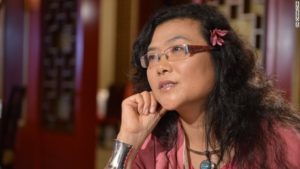 The number of people avoiding marriage is growing dramatically in China, while the government hopes youngsters not only marry, but also give birth to children. But the change is more than about demographics only, says the journalist Zhang Lijia, author of “Socialism Is Great!”: A Worker’s Memoir of the New China
The number of people avoiding marriage is growing dramatically in China, while the government hopes youngsters not only marry, but also give birth to children. But the change is more than about demographics only, says the journalist Zhang Lijia, author of “Socialism Is Great!”: A Worker’s Memoir of the New China in the Guardian.
The Guardian:
Some of this is because of China’s ageing population. Decades of the one-child policy, which was scrapped in 2016, forced the population into decline, meaning that the pool of people of marrying age has been shrinking.
But, analysts say, demographics alone don’t explain the trend.
“The deeper change is in attitudes,” said Lijia Zhang, a writer who is working on a book about marriage in China. “In the past, when the country was poor, marriage was an economic necessity … Now it’s about personal happiness, more than anything else, not filial duty or social obligation. Many urban, educated women no longer see marriage or motherhood as essential to a fulfilling life.”
Hao Jingyi, 19, agrees. “If I don’t meet someone suitable, I would enjoy more freedom and comfort living alone … women are increasingly disappointed with men these days,” she said,
Zhang Lijia is a speaker at the China Speakers Bureau. Do you need her at your meeting or conference? Do get in touch or fill in our speakers’ request form.
Are you looking for more experts on cultural change at the China Speakers Bureau? Do check out this list.
